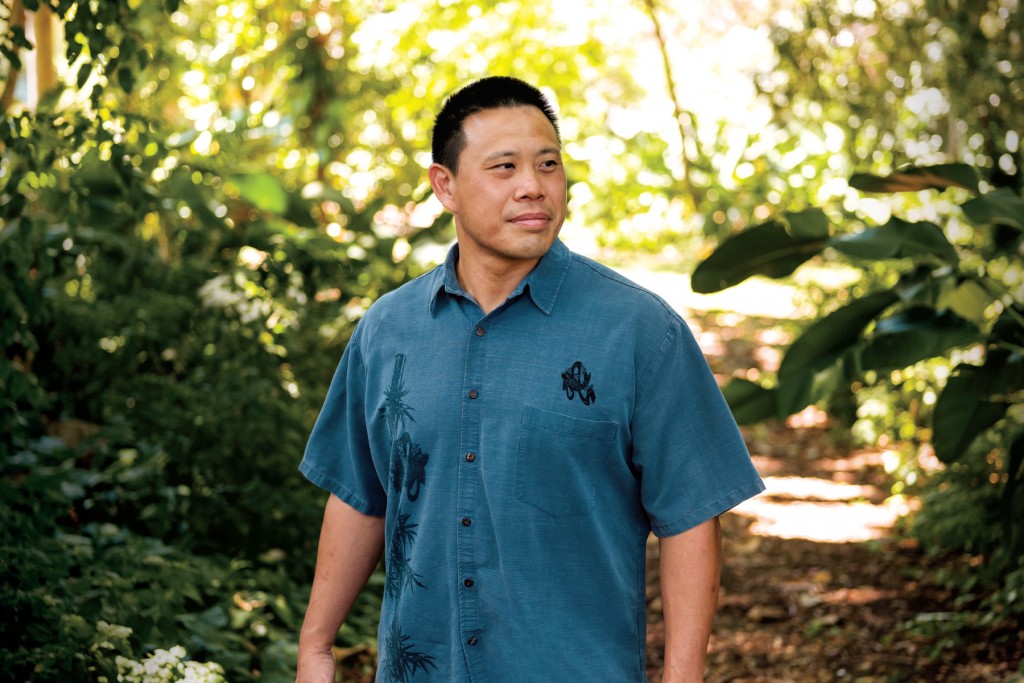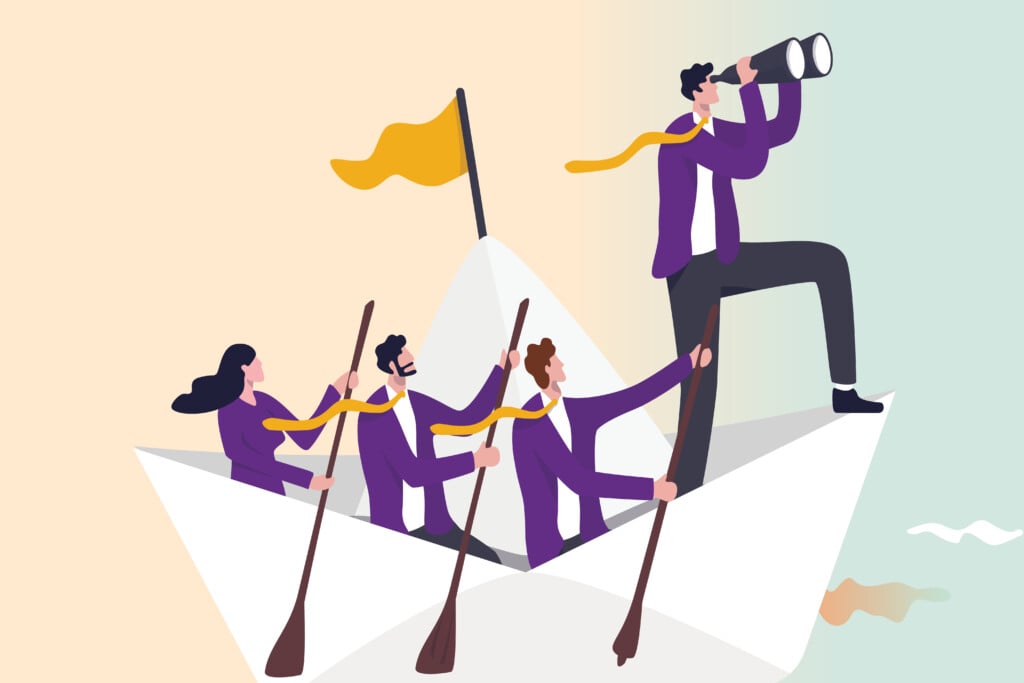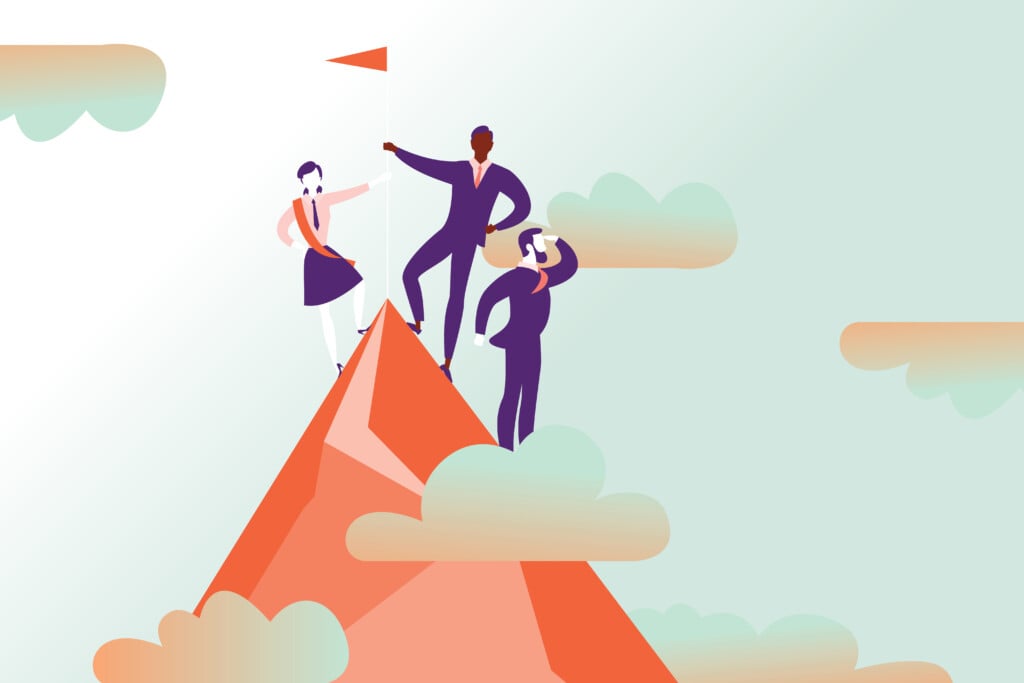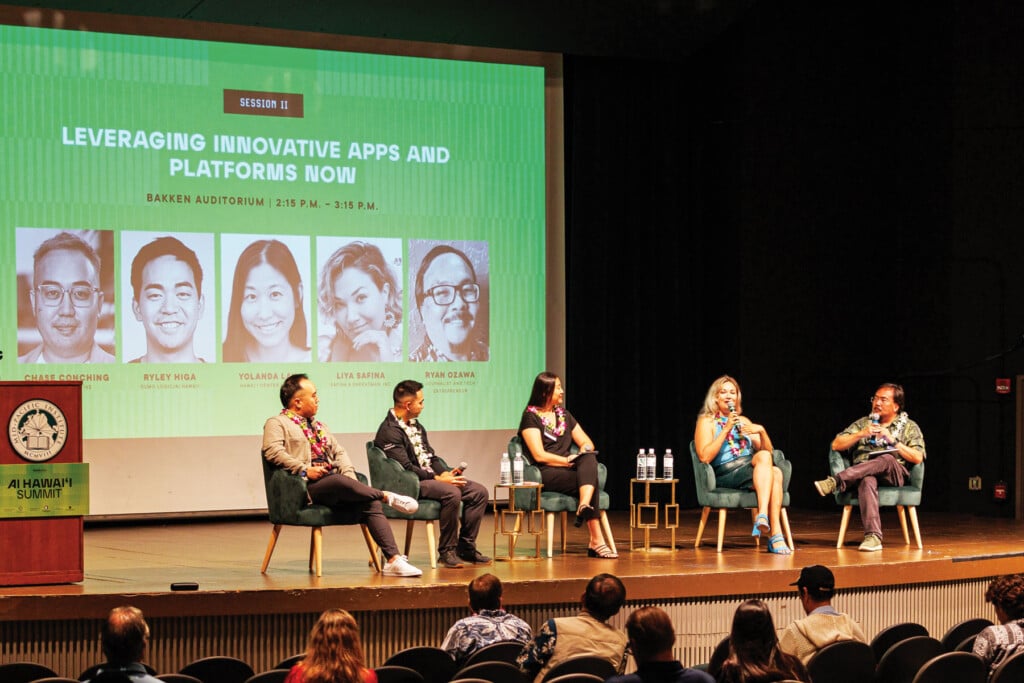Talk Story: John Leong, CEO of Kupu and Pono Pacific and an Obama Foundation Fellow

Leong leads two organizations: Pono Pacific, a company that helps manage natural resources for landowners and conservation managers, with a focus on sustainability; and Kupu, a youth-empowerment nonprofit with conservation, culinary and other programs. He believes Hawai‘i is an ideal hub for collaboration to solve problems facing the Pacific region.
Q: Congratulations on being selected as an Obama Foundation Fellow. What were the steps involved?
Leong: I applied in 2018 at the urging of a few friends. Ours is the second cohort of the global leadership program and there are only 20 positions, though several thousand folks applied. We had our first gathering in May 2019. It’s supposed to be a two-year program but due to COVID I think they will stretch it.
It was an unbelievable experience meeting the other fellows. Not only to meet people from other countries, but to interact with such passionate people and see our overall alignment to do good throughout the world. I love to meet other people who are at the top of their game, doing social innovation and creating change in their communities.
Q: Are you working on projects with other fellows?
Leong: Mostly it has been small clusters of activity. We collaborated with another fellow, Ciara Byrne, who’s in Las Vegas. She’s working on food-based education and creating local food production in schools. That overlaps with what Kupu does.
The Obama Foundation provides support and access to people, resources, potential funding and partnerships.
Q: Who inspires you?
Leong: Barack and Michelle Obama have been huge inspirations. Talking with them in person has shown me the character with which they lead. I have a deeper sense of the type of people they are, the type of leadership they have had during their time in (public) office and what they want to leave behind.
They created the Obama Foundation and the fellowship program to foster leadership that would eclipse their own leadership – for the world’s benefit, to solve big issues together.
Valerie Jarrett (a senior aide to President Obama andnow to the foundation) is also a wonderful inspiration. I admire how as a single mom and a high-level leader, she prioritizes family while not giving up the ability to get work done. That was really inspiring to me as a father of four.
Another inspiration is Wes Moore the CEO of Robin Hood Foundation, a nonprofit fighting poverty. He came from a disadvantaged family in Baltimore and worked to attain a Rhodes scholarship to Oxford. Moore shared the story from his book – “The Other Wes Moore” – which tells of a different Wes Moore from the same Baltimore neighborhood who ended up in prison.
The convicted Moore said one of the biggest challenges he faced was people’s low expectations of him – that because he grew up on the “wrong side” of Baltimore that’s all he was going to be in life.
The CEO Moore had people who believed in him, even though he came from the same challenged beginnings. This reminds me that the work we’re doing is important and believing in our next generation is important. As we become leaders it’s not just about moving forward and moving the company upward, it’s also about lifting people up and believing in them.
Q: You were also an Omidyar Fellow and a Pacific Century Fellow. How would you compare those to the Obama Foundation Fellowships?
Leong: To do a comparison would be an injustice; they meet different needs of people in different areas or periods in their leadership. PCF is a great way to meet other leaders and to understand our state’s major issues. Omidyar is about the transformation of the leader; there’s a lot of education.
The similarities are the amazing people you meet and learn from, the staff, the other fellows, the trainers and the speakers. In all three there is a sense of investing, of passing on the baton to increase the capacity of the leaders to bring transformation to the world. They all bring people together from different sectors, so they can look at a problem holistically and create solutions that one may not see just looking through their own lens.
Q: What in the Obama Foundation Fellowship challenged you to take your leadership to the next level?
Leong: One of the things taught was that humans were made to handle stress, but not sustained stress. When stress goes up, we have to be intentional about coming down so that serotonin levels can be restored.
Studies found that CEOs and leaders of nonprofits are the people most likely to burn out from stress. When you’re in a nonprofit, everything is about the mission. It’s about getting the work done for a higher cause, so we don’t give ourselves permission to take a break. If you’re taking a break, you’re selfish, and that’s the wrong mentality, but that’s how a lot of folks feel in the social enterprise and nonprofit field.
It was helpful to hear from the research that this is not good for you. This is a marathon, not a sprint. If you don’t learn how to pace yourself, if you don’t know how to care for yourself, then that leadership team starts to tank because they’re burned out. That has a far worse consequence than not putting in that extra two hours here, two hours there.
Q: In January 2019, Barack Obama said Hawaiʻi would play a significant role in the foundation’s Asia-Pacific agenda. How do you see that role?
Leong: I don’t know the specific plan. A lot of what I have heard is around connecting the Pacific region together and developing leaders who can create a common voice for islands facing big environmental challenges and climate change. Hawai‘i has the opportunity to be leaders in this area and a gathering place.
There’s amazing indigenous and other wisdom throughout the Pacific. We have a lot to learn and a lot to share.
Q: You’ve mentioned before that leadership is about serving the community around you and building people up to something bigger than themselves. How is this philosophy evolving as you gain experience?
Leong: It’s become a bigger part of who I am and an extension of the work I’m doing. When our creator says, “What did you do with the time that you had?” I want to be able to look back and say I gave my most to help uplift people. We have these great opportunities to pass on, to grow the right kind of heart, the right kind of mindset.
What I’m realizing more and more is how organizations, businesses, economy, they’re all important vehicles to transfer something through how they operate. The work that we’re doing at Kupu is really passing on the right ethics to our co-workers. It’s promoting the right structure and products and services within the community as we do it.
Q: Any final thoughts?
Leong: I just want to say to anyone who may be feeling discouraged and overwhelmed right now: Stay encouraged, stay with it, don’t give up on doing what’s right for the world around us.
This season we’re all getting a little beaten up, but this is a time more than ever that we need to keep our eye on what’s important and encourage one another and not give up. Hawai‘i needs people like you that are seeking to do what’s right and willing to do the hard work that’s necessary and Hawai‘i is going to be better because of you.






